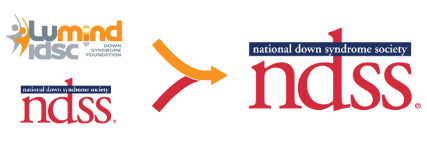Major pharmaceutical company announces Down syndrome population will see a clinical trial of new Alzheimer’s drug
People with Down syndrome will be invited to participate in a clinical trial of donanemab, the anti-amyloid Alzheimer’s drug developed by Eli Lilly and Company (Lilly). The news was announced in comments by Lilly’s Chief Medical Officer, David Hyman, MD, during a U.S. Food & Drug Administration (FDA) Advisory Committee meeting on the status of the drug.
To date, donanemab has only been tested with trials in neurotypical people with sporadic Alzheimer’s disease – the most common, non-genetic form of the disease.
Dr. Hyman was responding to a point of discussion around the so-called “special categories” of patients with Alzheimer’s disease – those with autosomal-dominant Alzheimer’s disease and those with Down syndrome – when he referenced his company’s plan to launch a study assessing the safety of the use of donanemab by people with Down syndrome.
“We indeed recognize those are two very important populations that were not addressed in our pivotal program,” Dr. Hyman said. “We actually have academic-industry collaborations planned for both of those populations, with two unique studies that we are planning to launch in the near future to address that data gap.”
His comments were the first public indication that Lilly plans to break new ground by specifically studying the use of their anti-amyloid drug in people with Down syndrome.
“We are thrilled that Lilly announced their plan for an upcoming clinical trial in Down syndrome,” Hampus Hillerstrom said. He is the president and CEO of the LuMind IDSC Foundation. “We have been advocating for this type of trial for two years, and our community has been waiting for more than 20 years for the pharmaceutical industry to recognize that people with Down syndrome deserve equal access to life-changing drugs like donanemab. This is a huge step forward and a reason for families to hope.”
People with Down syndrome have a 90% risk of developing Alzheimer’s disease, and on average they receive their diagnosis at age 54, decades before the general population. Alzheimer’s disease currently leads to 70-80% of deaths in adults with Down syndrome. To date, no one with Down syndrome has been included in a clinical trial of donanemab or in trials of the other two anti-amyloid drugs: Leqembi (approved by the FDA in 2023) and Aduhelm (approved by the FDA in 2022).
An assessment of the safety of donanemab as a therapy for adults with Down syndrome and Alzheimer’s disease signals an end to the three key barriers that, until now, had prevented the community from accessing this first wave of anti-amyloid drugs.
The FDA previously announced, if and when donanemab is approved for use, people with Down syndrome will not be excluded from the label; meaning, doctors would be allowed to prescribe it to people with Down syndrome who have an Alzheimer’s diagnosis.
The second hurdle to equal access was eliminated recently when the U.S. Centers for Medicaid and Medicare (CMS) indicated that the federal government would reimburse the cost of anti-amyloid drugs for adults with Down syndrome.
“With the advent of the Lilly trial now confirmed, the pathway to access is clear,” Hillerstrom said. “The momentum has been gradually building from inside and outside the Down syndrome community, and we look forward to learning the details of the Lilly study and supporting it however we can.”
The announcement of the Lilly trial in Down syndrome was a side note during a seven-hour meeting that covered a wide range of questions from the Peripheral and Central Nervous System Drug Advisory Committee.
The Committee is comprised of a panel of experts and was convened by the FDA to comment on the safety and efficacy of donanemab and to more closely examine aspects of the clinical study design. Advisory committees are a normal part of the FDA’s approval process.
One Committee member, Dr. Nilufer Ertekin-Taner, of the Mayo Clinic, repeatedly raised the point that additional data needs to be generated for people with Down syndrome, people with autosomal-dominant AD, and people from under-represented minorities. She called on all those present to commit to more inclusive research.
“It is everyone’s duty to obtain that information in going forward,” she said.
Of particular interest to the Committee members was the unique structure of the clinical trial’s “limited-duration dosing regimen” that allowed participants to stop receiving infusions of donanemab once the drug reduces amyloid plaque below a certain threshold. In addition, the advisory committee reviewed the study’s criteria for sorting participants based on the level of tau in their brains.
After hours of discussion by the Committee, FDA staff, and researchers from Lilly, the Committee voted publicly, and unanimously, that the benefits of donanemab significantly outweighed potential risk, essentially clearing the way for the FDA to approve the drug in the near future.
For more information about the Down syndrome community’s fight to be included in safety trials and to gain equal access to Alzheimer’s therapies, please see our Policy page. All are invited to join the national petition demanding policy changes to ensure people with Down syndrome gain equal access to Alzheimer’s treatments
